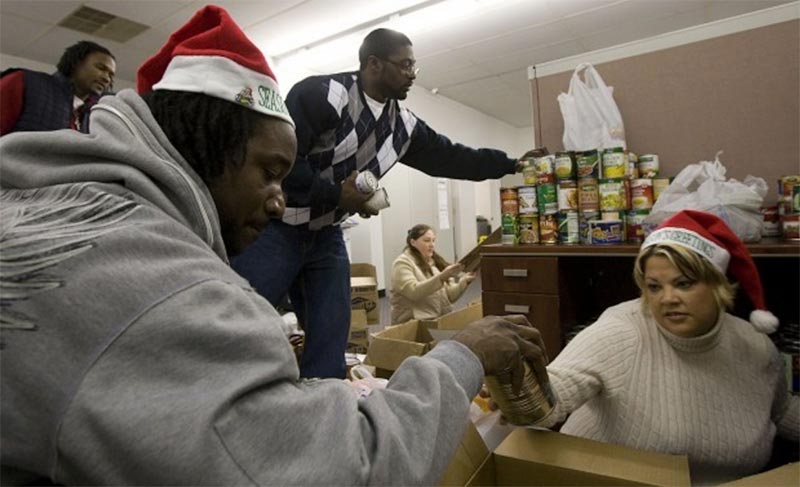
Cognitive behavioral therapy involves interventions that focus on change through demonstrated behavior outcomes, according to Doris Layton MacKenzie’s “What Works in Corrrections.” Behavior change occurs through changes in a way a person perceives, reflects and thinks about their life. A key aspect of cognitive behavioral therapy is moral development.
“Individuals who are at higher levels of moral reasoning are more capable of choosing behavior that is socially defined as ‘right’….Thus, the goal of treatment is to raise the (offender’s) moral reasoning to a higher level.”
When a group of parolees in Decatur, IL, gathered and donated 900 nonperishable food items over the holidays, they took a positive step toward sympathizing with the plight of someone in need, and boosting their moral reasoning.
BI staff at the Spotlight Reentry Center in Decatur, IL, organized the drive. Parolees embraced the effort and contributed time and food items to help make the drive such a success. Many helped as part of their community service requirement; many contributed time and effort beyond their requirement after they arrived to help unload the items at the Central Illinois Foodbank.
“It just blows my mind how people who are struggling to put their lives back together … step up to help those in more need than they are,” said Jerry Pelz, executive director of the Northeast Community Fund.
